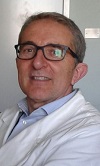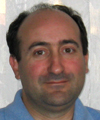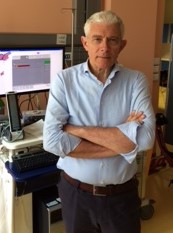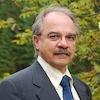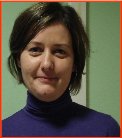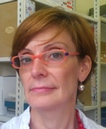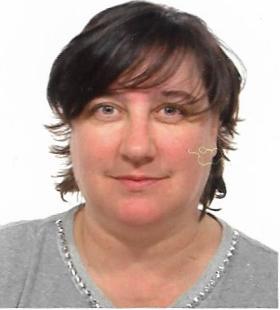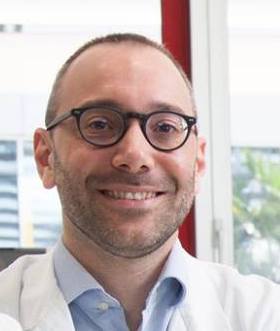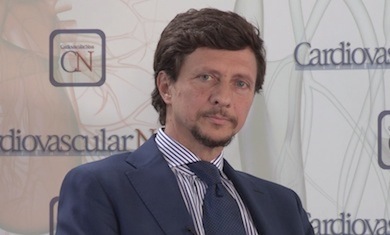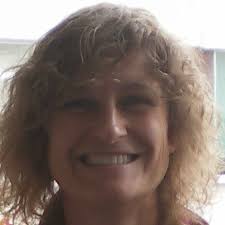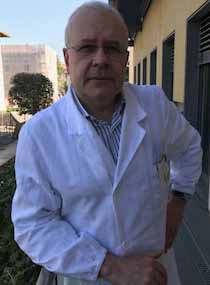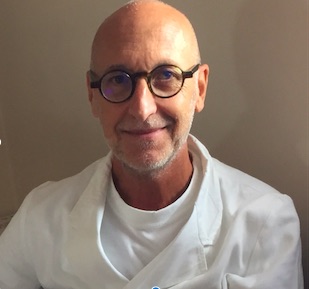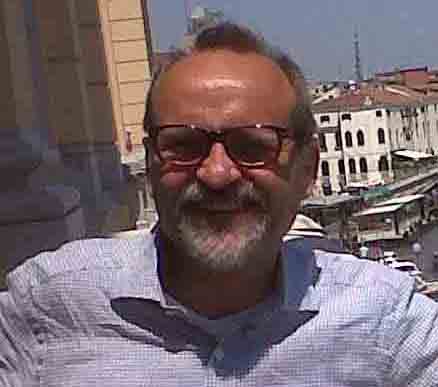Studying at the University of Verona
Here you can find information on the organisational aspects of the Programme, lecture timetables, learning activities and useful contact details for your time at the University, from enrolment to graduation.
Academic calendar
The academic calendar shows the deadlines and scheduled events that are relevant to students, teaching and technical-administrative staff of the University. Public holidays and University closures are also indicated. The academic year normally begins on 1 October each year and ends on 30 September of the following year.
Course calendar
The Academic Calendar sets out the degree programme lecture and exam timetables, as well as the relevant university closure dates..
| Period | From | To |
|---|---|---|
| FISIO VR 3^ ANNO - 1^ SEMESTRE | Oct 1, 2018 | Nov 9, 2018 |
| FISIO VR 2^ ANNO - 1^ SEMESTRE | Oct 2, 2018 | Nov 10, 2018 |
| FISIO VR 1^ ANNO - 1^ SEMESTRE | Oct 15, 2018 | Dec 21, 2018 |
| FISIO VR 2^ ANNO - 2^ SEMESTRE | Feb 1, 2019 | Mar 22, 2019 |
| FISIO VR 1^ ANNO - 2^ SEMESTRE | Mar 4, 2019 | May 10, 2019 |
| FISIO VR 3^ ANNO - 2^ SEMESTRE | Mar 11, 2019 | Apr 5, 2019 |
| Session | From | To |
|---|---|---|
| FISIO VR SESSIONE INVERNALE | Jan 7, 2019 | Jan 31, 2019 |
| FISIO VR SESSIONE ESTIVA | Jul 1, 2019 | Jul 31, 2019 |
| FISIO VR SESSIONE AUTUNNALE | Sep 2, 2019 | Sep 27, 2019 |
| Session | From | To |
|---|---|---|
| FISIO SESSIONE AUTUNNALE | Nov 1, 2019 | Nov 30, 2019 |
| FISIO SESSIONE PRIMAVERILE | Mar 1, 2020 | Mar 31, 2020 |
| Period | From | To |
|---|---|---|
| Festa di Ognissanti | Nov 1, 2018 | Nov 1, 2018 |
| Festa dell’Immacolata | Dec 8, 2018 | Dec 8, 2018 |
| VACANZE DI NATALE | Dec 24, 2018 | Jan 6, 2019 |
| Vacanze di Pasqua | Apr 19, 2019 | Apr 28, 2019 |
| Festa della liberazione | Apr 25, 2019 | Apr 25, 2019 |
| Festa del lavoro | May 1, 2019 | May 1, 2019 |
| Festa del Santo Patrono | May 21, 2019 | May 21, 2019 |
| Festa della Repubblica | Jun 2, 2019 | Jun 2, 2019 |
| Vacanze estive | Aug 5, 2019 | Aug 18, 2019 |
| Description | Period | From | To |
|---|---|---|---|
| FISIO VR 3^ anno - 1^semestre (1 periodo) | FISIO VR 3^ anno - 1^semestre (1 periodo) | Nov 12, 2018 | Dec 21, 2018 |
| FISIO VR 2^ anno - 1^semestre | FISIO VR 2^ anno - 1^semestre | Nov 19, 2018 | Dec 21, 2018 |
| FISIO VR 1^ anno - 1^semestre | FISIO VR 1^ anno - 1^semestre | Feb 4, 2019 | Mar 1, 2019 |
| FISIO VR 3^ anno - 1^semestre (2 periodo) | FISIO VR 3^ anno - 1^semestre (2 periodo) | Feb 4, 2019 | Mar 8, 2019 |
| FISIO VR 2^ anno - 2^semestre | FISIO VR 2^ anno - 2^semestre | Mar 25, 2019 | Jun 21, 2019 |
| FISIO VR 3^ anno - 2^semestre | FISIO VR 3^ anno - 2^semestre | Apr 8, 2019 | Jun 21, 2019 |
| FISIO VR 1^ anno - 2^semestre | FISIO VR 1^ anno - 2^semestre | May 13, 2019 | Jun 21, 2019 |
Exam calendar
Exam dates and rounds are managed by the relevant Medicine Teaching and Student Services Unit.
To view all the exam sessions available, please use the Exam dashboard on ESSE3.
If you forgot your login details or have problems logging in, please contact the relevant IT HelpDesk, or check the login details recovery web page.
Should you have any doubts or questions, please check the Enrollment FAQs
Academic staff
 davide.adamoli@univr.it
davide.adamoli@univr.it
 cinzia.biondani@ospedaleuniverona.it
cinzia.biondani@ospedaleuniverona.it
 giorgio.borghesan@libero.it
giorgio.borghesan@libero.it
 davideconte.bioeng@gmail.com
davideconte.bioeng@gmail.com
 annamaria.molino@univr.it
annamaria.molino@univr.it
 nicola.pelizzari@univr.it
nicola.pelizzari@univr.it
 alessandra.zivelonghi@aovr.veneto.it
alessandra.zivelonghi@aovr.veneto.it
Study Plan
The Study Plan includes all modules, teaching and learning activities that each student will need to undertake during their time at the University.
Please select your Study Plan based on your enrollment year.
1° Year
| Modules | Credits | TAF | SSD |
|---|
2° Year activated in the A.Y. 2019/2020
| Modules | Credits | TAF | SSD |
|---|
3° Year activated in the A.Y. 2020/2021
| Modules | Credits | TAF | SSD |
|---|
| Modules | Credits | TAF | SSD |
|---|
| Modules | Credits | TAF | SSD |
|---|
| Modules | Credits | TAF | SSD |
|---|
Legend | Type of training activity (TTA)
TAF (Type of Educational Activity) All courses and activities are classified into different types of educational activities, indicated by a letter.
FUNDAMENTALS OF MEDICAL CLINIC IN PHYSIOTHERAPY (2019/2020)
The teaching is organized as follows:
Learning outcomes
Fornire conoscenze di base riguardanti la farmacologia, patologia generale, microbiologia, medicina interna e terapia medica di interesse fisioterapico.
MODULO: FARMACOLOGIA Comprendere le azioni dei farmaci sui processi fisiopatologici dei pazienti con particolare riferimento ai farmaci usati nelle aree principali di intervento del fisioterapista.
MODULO: PATOLOGIA GENERALE Acquisire gli strumenti concettuali e scientifici per spiegare le cause e i meccanismi delle malattie umane. Conoscere i principali fattori patogeni, i principi generali dei disordini dell’omeodinamica dei sistemi complessi, le reazioni al danno biologico con particolare riferimento all’infiammazione, ai processi di guarigione o di cronicizzazione.
MODULO: MICROBIOLOGIA Acquisire le informazioni essenziali sui processi infettivi sostenuti da virus e batteri, sulle modalità di crescita e di diffusione di questi microrganismi e sulle misure preventive.
MODULO: MEDICINA INTERNA E TERAPIA MEDICA Inquadrare le patologie internistiche sapendone individuare i principali aspetti clinici e riconoscerne le possibili complicanze di interesse per il fisioterapista. Individuare le terapie farmacologiche più frequenti conoscendo le principali indicazioni e gli effetti collaterali. Conoscere le principali tecniche e procedure riabilitative relative alle principali disabilità viscerali.
Program
------------------------
MM: MEDICINA INTERNA E TERAPIA MEDICA
------------------------
ENDOCRINOLOGY - Diabetes: physiopthalogy, natural history, acute and cronic complications, therapy - GH related deseases - Hypothyroidism and hyperthyroidism - Adrenal deseases. HEMATOLOGY - Anemias: classification, main compensation mechanisms, description of most common anemias types
------------------------
MM: FARMACOLOGIA
------------------------
Analysis of drug/receptor interaction and the generation of drug effect(s). Terminology related to drug use, the methodologies of drug identification and clinical development. Adverse reactions: classification and reporting Analysis of the pharmacokinteic properties of drugs applied to patient treatment with detailed knowledge and understanding of : 1- drug absorption with emphasis on differences between routes of administration;2- drug distribution and elimination; 3- drug metabolism ; 4- quantitative approach to pharmacokinetics and the definition of a therapeutic regimen Mechanims of action, classification, therapeutic effects and adverse reactions and clinical uses of antiinflammatory drugs Mechanims of action of drugs active on the neuromuscular system
------------------------
MM: MICROBIOLOGIA
------------------------
• Microbiology introduction • Bacteriology: • bacterial cells and spore structure and functions. • Bacterial replication • Bacterial pathogenesis • Virology: • Virus structure and composition • Viral replication • Viral infections • Way of infections transmission and preventions.
------------------------
MM: PATOLOGIA GENERALE
------------------------
1. Introduction General concepts The pathological process as an alteration of homeostasis: adaptation, compensation and reactivity. Pathogenesis General etiology Glossary 2. Cellular pathology Pathogenesis of cellular damage subsequent to hypoxic, ischemic and oxidative stress Cell death: necrosis and apoptosis Serum markers of cellular damage 3. The innate immune response Mononuclear phagocytes: features and functions Acute inflammation: vascular phase and cellular phase Exudate: features and functions The mediators of inflammation Migration of leukocytes Action of leukocytes in the inflammatory site (bactericidal mechanisms, phagocytosis) Systemic effects of inflammation Consequences of acute inflammation Evolution : chronic inflammation, repair, regeneration, fibrosis, sclerosis 4. Elements of immunology Innate and acquired immunity, characteristics and differences. Cells of the immune system and their characteristics Stages of the specific immune response Active, passive and vaccination-induced immunity 5. Pathologies of proliferation and differentiation processes Neoplasia (general concepts). The neoplastic cell: morphological, biochemical, molecular and functional aspects. Classification, degree and stage of tumors Molecular basis of oncology: genetic pathogenesis of tumors Oncogenes and antioncogenes Natural history of the tumor: neoplastic progression and genetic heterogeneity Metastases: metastatic diffusion pathways and stages
Bibliography
| Author | Title | Publishing house | Year | ISBN | Notes |
|---|---|---|---|---|---|
| Pontieri G.M. | Elementi di Patologia generale | Piccin | 2018 | ||
| Taglialatela Conforti Cuzzolin Leone Mattioli Moretti Pignataro Vanzetta | Farmacologia per le lauree triennali e magistrali II Edizione (Edizione 2) | Sorbona | 2019 | ||
| C. Rugarli | Medicina Interna Sistematica | MASSON | 2016 | ||
| Simona De Grazia, D. Ferraro, G. Giammanco | Microbiologia e microbiologia clinica per infermieri | Pearson | 2017 | ||
| Clementi Fumagalli | Farmacologia Generale e Molecolare (Edizione 5) | Edra | 2018 | 978-88-214-4436-4 | |
| A. Conforti, L. Cuzzolin, R. Leone, U. Moretti, G. Pignataro, M. Taglialatela, M. Vanzetta | Farmacologia per le professioni sanitarie (Edizione 1) | Idelson-Gnocchi | 2015 | 978-88-7947-592-1 |
Examination Methods
------------------------
MM: MEDICINA INTERNA E TERAPIA MEDICA
------------------------
oral and/or written test
------------------------
MM: FARMACOLOGIA
------------------------
Written exam with multiple choice questions
------------------------
MM: MICROBIOLOGIA
------------------------
Multiple choice test
------------------------
MM: PATOLOGIA GENERALE
------------------------
Written test
Career prospects
Module/Programme news
News for students
There you will find information, resources and services useful during your time at the University (Student’s exam record, your study plan on ESSE3, Distance Learning courses, university email account, office forms, administrative procedures, etc.). You can log into MyUnivr with your GIA login details: only in this way will you be able to receive notification of all the notices from your teachers and your secretariat via email and soon also via the Univr app.
Gestione carriere
Graduation
Documents
| Title | Info File |
|---|---|
|
|
pdf, it, 367 KB, 19/02/24 |
|
|
pdf, it, 142 KB, 19/01/24 |
|
|
pdf, it, 862 KB, 19/01/24 |
|
|
pdf, it, 273 KB, 25/03/24 |
Appelli d'esame
AVVISO IMPORTANTE
Gli appelli d’esame si aprono per l’intero Insegnamento e non per singoli moduli.
Per il singolo modulo di cui non è stato aperto appello, come sopra descritto, una settimana prima dell'esame, è OBBLIGATORIO comunicare, utilizzando la propria mail istituzionale o di classe, al/i docente/i, l’intenzione di sostenere l’esame stesso.
Negli allegati, divisi per anno, sono indicate, dove comunicate dai Coordinatori d’Insegnamento, tutte le date, gli orari, le aule e le modalità degli esami.
L’iscrizione agli APPELLI D'ESAME APERTI ON LINE è OBBLIGATORIA.
Documents
| Title | Info File |
|---|---|
|
|
pdf, it, 511 KB, 20/03/24 |
|
|
pdf, it, 598 KB, 15/04/24 |
|
|
pdf, it, 505 KB, 12/04/24 |
|
|
pdf, it, 313 KB, 02/10/23 |
Tirocinio professionalizzante
a) Finalità del Tirocinio Le attività di tirocinio sono finalizzate a far acquisire allo studente le competenze specifiche previste dal profilo professionale. Per conseguire tali finalità formative, si possono attivare convenzioni con strutture che rispondano ai requisiti di idoneità per attività, dotazione di servizi e strutture. I 60 crediti minimi riservati al tirocinio sono da intendersi come impegno complessivo necessario allo studente per raggiungere le competenze professionali “core” previste dal rispettivo profilo professionale. Il tirocinio professionale comprende: - sessioni tutoriali che preparano lo studente all’esperienza; - esercitazioni e simulazioni in cui si sviluppano le abilità tecniche, relazionali e metodologiche in situazione protetta prima o durante la sperimentazione nei contesti reali; - esperienze dirette sul campo con supervisione; - sessioni tutoriali e feedback costanti; - compiti didattici, elaborati e approfondimenti scritti specifici e mandati di studio guidato. b) La valutazione delle competenze acquisite in tirocinio Le esperienze di tirocinio devono essere progettate, valutate e documentate nel percorso dello studente. Durante ogni esperienza di tirocinio lo studente riceve valutazioni formative sui suoi progressi sia attraverso colloqui e schede di valutazione. Al termine di ciascun anno di corso viene effettuata una valutazione certificativa per accertare i livelli raggiunti dallo studente nello sviluppo delle competenze professionali attese. Tale valutazione è la sintesi delle valutazioni formative via via documentate durante l’anno di corso, il profitto raggiunto negli elaborati scritti e le performance dimostrate all’esame di tirocinio che può essere realizzato con colloqui, prove scritte applicative, esami simulati. La valutazione annuale è certificata da una Commissione presieduta dal Coordinatore della didattica professionale e composta almeno da un docente e da un Tutor Clinico. La valutazione certificativa del tirocinio sarà espressa in trentesimi in base al livello di raggiungimento degli obiettivi. Verrà registrato come “ritirato” lo studente che sospende il tirocinio per problemi di salute, gravidanza o per motivazioni personali; sarà registrata come “respinto” quando lo studente durante il percorso o alla fine del tirocinio non ha raggiunto livelli sufficienti negli obiettivi formativi. L’esame annuale di tirocinio prevede un unico appello per anno accademico, salvo particolari situazioni per le quali la commissione didattica potrà concedere un appello straordinario. c) Prerequisiti di accesso al tirocinio Pag. 7 di 12 Il Coordinatore della didattica professionale ammette alla frequenza dell’esperienza di tirocinio previsto per l’anno di corso gli studenti che: hanno frequentato regolarmente le attività teoriche, in particolare gli insegnamenti delle discipline professionali dell’anno in corso e dell’anno precedente; hanno partecipato regolarmente ai laboratori professionali ritenuti propedeutici al tirocinio d) Assenze dal tirocinio Lo studente che si assenta dal tirocinio per periodi brevi (assenze inferiori ad una settimana durante l’anno solare) può recuperare tali assenze su autorizzazione del tutor/clinico salvaguardando orari che offrono opportunità di apprendimento. Non sono ammessi recuperi di giornate isolate al di fuori del periodo dedicato al tirocinio. Lo studente che si assenta dal tirocinio per periodi lunghi (assenze superiori ad una settimana nell’anno solare) – per gravi e giustificati motivi – deve concordare con il Coordinatore della didattica professionale un piano di recupero personalizzato. Lo studente che conclude positivamente il tirocinio di anno con un debito orario sul monte ore previsto (non superiore a 15 ore), può essere ammesso all’esame annuale di tirocinio se l’assenza non ha compromesso il raggiungimento degli obiettivi di anno e può recuperare il suddetto debito entro la fine del 3° anno. Lo studente è tenuto a documentare le ore di presenza in tirocinio nel libretto, a farle controllare e controfirmare dal tutor e segnalare tempestivamente l’esigenza di recupero di eventuali assenze. e) Sospensione dal tirocinio Le motivazioni che possono portare alla sospensione dal tirocinio sono le seguenti: Motivazioni legate allo studente: - studente potenzialmente pericoloso per la sicurezza degli utenti/tecnologia o che ha ripetuto più volte errori che mettono a rischio la vita dell’utente; - studente che non ha i prerequisiti e che deve recuperare obiettivi formativi propedeutici ad un tirocinio formativo e sicuro per gli utenti; - studente che frequenta il tirocinio in modo discontinuo. Altre motivazioni: - stato di gravidanza nel rispetto della normativa vigente; - studente con problemi psicofisici che possono comportare stress o danni per lui, per i malati o per l’équipe della sede di tirocinio o tali da ostacolare le possibilità di apprendimento delle competenze professionali core. La sospensione temporanea dal tirocinio è proposta dal tutor al Coordinatore della didattica professionale tramite apposita relazione, che verrà discussa e motivata in un colloquio con lo studente. La sospensione è formalizzata con lettera del Coordinatore della didattica professionale allo studente. La riammissione dello studente al tirocinio è concordata con tempi e modalità definite dal Coordinatore della didattica professionale sentito il tutor che l’ha proposta. Qualora persistano le difficoltà che hanno portato alla sospensione temporanea dal tirocinio o ci sia un peggioramento che impedisce l’apprendimento delle abilità professionali, il Coordinatore della didattica professionale ha facoltà di proporre al Collegio Didattico la sospensione definitiva dello studente dal tirocinio tramite apposita relazione che documenti approfonditamente le motivazioni f) Studenti ripetenti per profitto insufficiente in tirocinio. Lo studente ripetente per un profitto insufficiente in tirocinio concorda con il Coordinatore della didattica professionale un piano di recupero personalizzato sulla base dei propri bisogni formativi che potrà prevedere un prolungamento dell’attività di tirocinio. Per essere ammesso a frequentare l’esperienza di tirocinio prevista dal piano di recupero personalizzato, allo studente ripetente è richiesto di Pag. 8 di 12 aver ripetuto le esperienze di laboratorio ritenute propedeutiche al tirocinio dal Coordinatore della didattica professionale. Lo studente insufficiente in tirocinio non può ripetere più di una volta il tirocinio per ogni anno di corso. Ciò vale anche nel caso in cui lo studente sospenda il tirocinio prima del termine previsto dal calendario e non si presenti all’Esame Annuale di Tirocinio. g) Tirocinio supplementare È possibile attivare un tirocinio supplementare in due casi: - studente ripetente o fuori corso, che abbia superato positivamente il tirocinio dell’anno in corso - studente che richieda un approfondimento tematico. Lo studente che richiede di svolgere un’esperienza supplementare dovrà rivolgersi al Coordinatore della didattica professionale che risponderà alle richieste compatibilmente con le esigenze organizzative. La frequenza dell’esperienza supplementare non deve interferire con il completamento dei suoi impegni di recupero teorico. L’esperienza supplementare dovrà essere valutata e registrata a tutti gli effetti sul libretto di tirocinio a scopi assicurativi, ma non potrà essere considerata un anticipo dell’anno successivo. h) Sciopero dei dipendenti delle strutture di tirocinio In caso di sciopero del personale dipendente delle strutture convenzionate per il tirocinio, che svolga attività di Guida, le esperienze di tirocinio saranno sospese. Tale assenza non dovrà essere recuperata, le ore saranno riconosciute come studio individualePer maggiori informazioni consultare la pagina del servizio
Orario lezioni
Si pubblicano gli orari delle lezioni relativi 2° semestre: Gli orari potrebbero subire alcune modifiche; pertanto si consiglia di consultare l'orario delle lezioni giornalmente nell‘area riservata MyUnivr e/o ORARIO LEZIONI.
Documents
| Title | Info File |
|---|---|
|
|
pdf, it, 697 KB, 24/08/23 |
|
|
pdf, it, 759 KB, 12/04/24 |
|
|
pdf, it, 712 KB, 28/02/24 |
|
|
pdf, it, 739 KB, 15/03/24 |
Student login and resources
Attività Seminariali/a scelta dello studente
Calendario delle Attività Seminariali tip F/a scelta dello studente
3 ANNO: 15/09/2022 SEMINARIO " EVIDENZE E PRASSI NELL'OSSERVAZIONE DEL PAZIENTE CON LOMBALGIA"
Documents
| Title | Info File |
|---|---|
|
|
pdf, it, 864 KB, 15/09/22 |

 +39 045 8027657
+39 045 8027657


